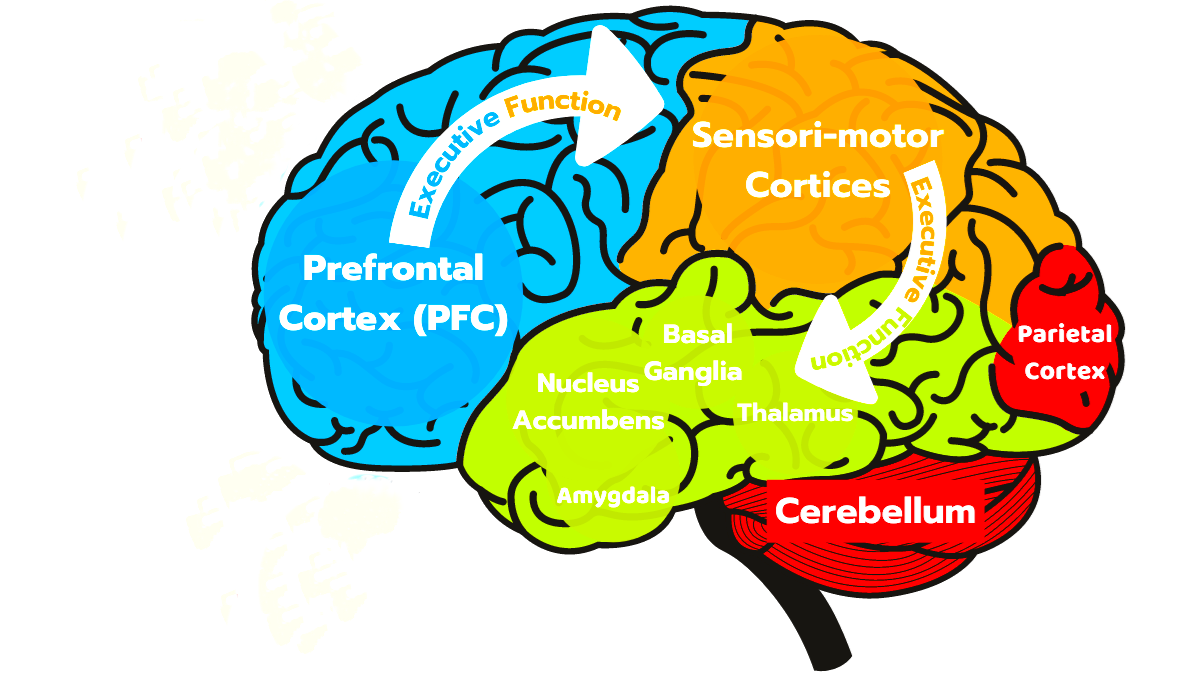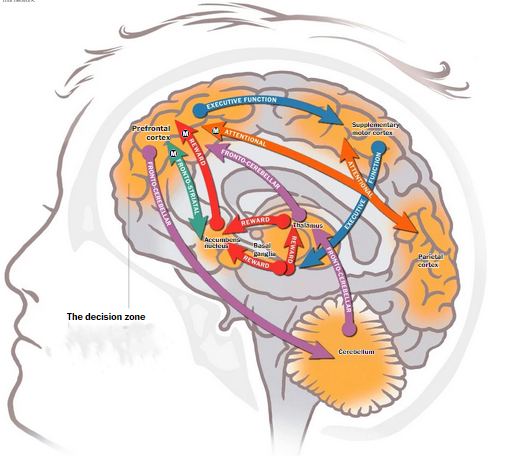Executive Functions
The prefrontal cortex, or the front part of the brain, is not well developed at birth. Slowly, over the first 25 year of life it develops an increasing number of connections. The prefrontal cortex was once thought to be largely responsible for adapting to new situations, planning, organizing, focusing, regulating emotions and behaviors. We now know that executive functions involve many areas of the brain all working together in a complicated interplay of network connections (Fiske & Holmboe, 2019). Collectively, this group of brain connections is called executive functioning or executive functions.

Foundational abilities in attention, memory, and processing speed are required to build and develop successful executive functioning. Examples of executive function skills include:
- metacognition—the ability to consider one’s own thought process, including self-awareness and self-monitoring.
- abstract reasoning skills.
- multi-step or multi-factor problem solving; and
- advanced Theory of Mind skills (e.g., perspective-taking).
Given the interconnectivity in the wiring of the brain, emotions play a significant role in understanding the big picture of executive functioning. For example, a student who is experiencing a big feeling will have difficulty regulating their body/behavior due to immature emotion regulation and executive function skills. This might look like physical expression (e.g., stomping feet, pounding fist) or saying things that are unkind when they are upset. The brain is in survival mode when it is in a state of fight, flight, freeze, or fawn, and a child is unable to access the limited executive function skills they may have developed. A child requires support from an emotionally regulated adult to move back into a regulated state. It is only once the child has returned to a state of regulation that they are able to plan, organize, and problem solve once again. Children need to be emotionally regulated to learn.
Speech-Language Pathologists can help assess, diagnose, and treat problems arising from executive function delays or impairments. Please connect with the classroom teacher if you have concerns.


